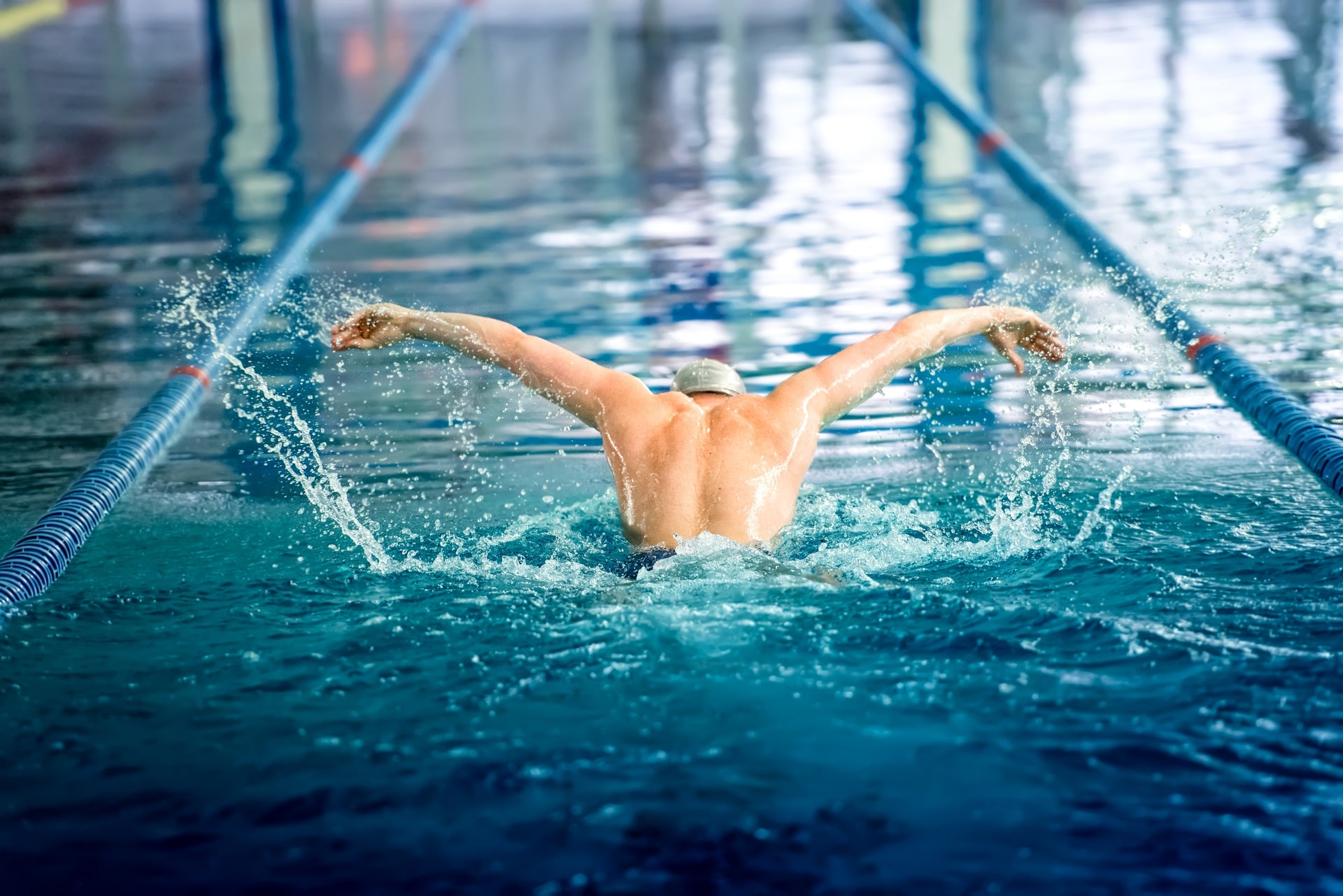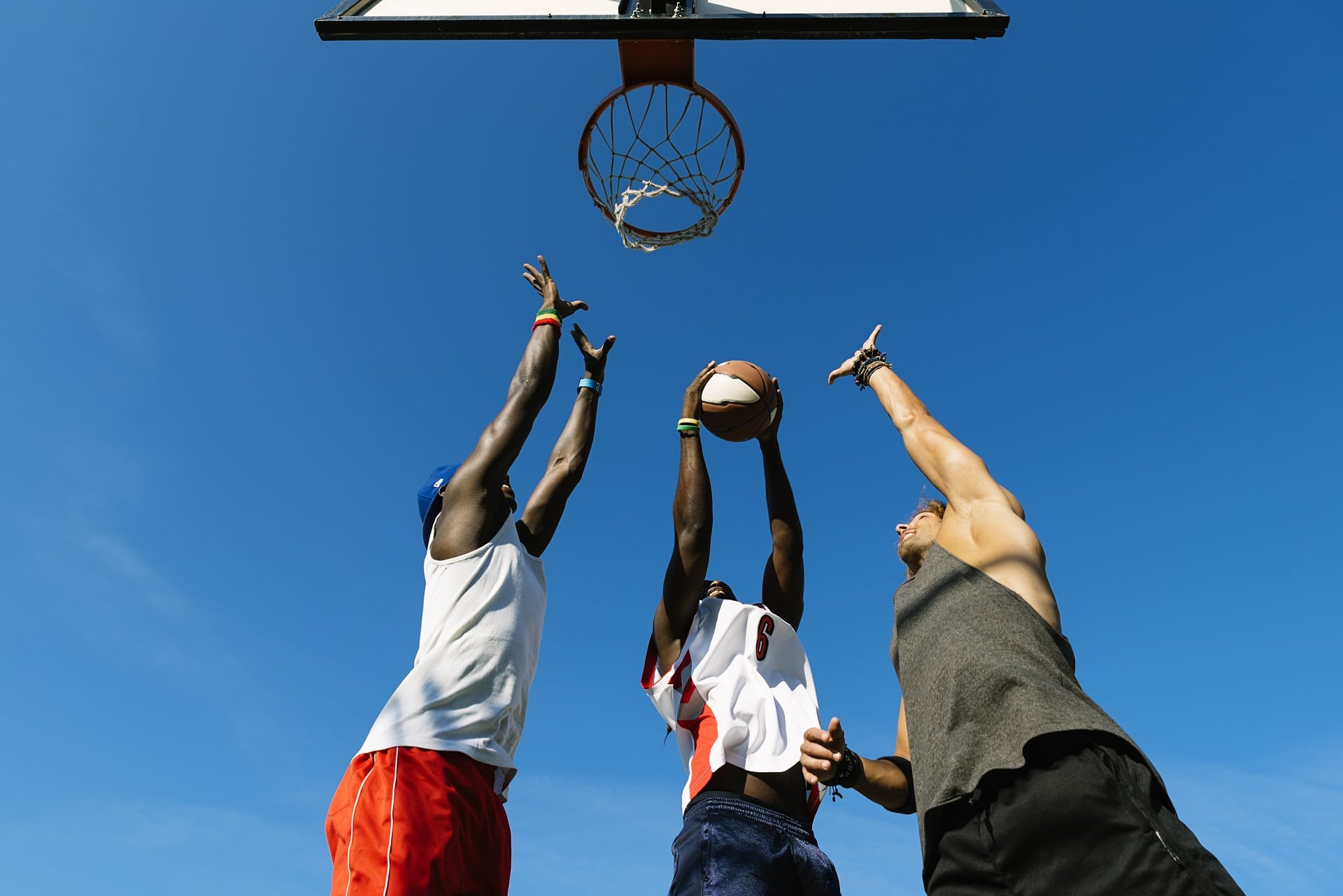Many athletes today have heard of Neuro-Linguistic Programming or NLP.
However, a good number of them don’t know what it means.
As a coach, I ask my players if they’ve heard of NLP.
And I get answers like “yes, I once saw an article about it,” or they say, “yes, earlier today, I heard some guy talking about it in the GYM.”
Every athlete, coach, or sports person should know that NLP can significantly differentiate athletic performance.
This is because NLP exploits the power of self-belief and great willpower.
For an athlete to be successful, there needs to be inbuilt self-confidence that continually reminds them that they are the best at what they do.
NLP is the study of the structure of our subjective experience. It is a communication process and learning tool for understanding our environment and interacting with others. NLP aims to create a conducive psychological environment that will eventually affect an athlete, physical performance.
Before going into the details of NLP, let’s familiarize you with the concept.
For example, before any game, coaches come to give pep talks. Our teammates shout, jump, shove each other to elevate our spirits and make us feel more determined to win.
That is NLP in its simplified form.
NLP aims to make a player win in their minds before they win on the field, track, air, or water.
What is NLP?

NLP has one formal meaning which is, “the study of the structure of our subjective experience.”
NLP aims to create a conducive psychological environment that will eventually affect an athlete, physical performance.
Making an athlete believe and achieve in their minds puts the body in prime condition to achieve greatness, which makes NLP so important.
With NLP, it’s creating excellence models for athletes to picture certain habits, skills, or methods that will guide them to achieving greatness.
Within the NLP Framework are seven fundamental techniques or applications to sport.
- Dissociation
- Context Reframing
- Anchoring
- Rapport
- Influence and Persuasion
- Modeling
- Correcting Mental Levels
For example, modeling is a complex learning activity that differentiates an excellent sportsperson and an average athlete and then replicating it.
This means that modeling creates a safe space for an athlete to be motivated, which brings their best abilities on the field.
But this isn’t the same with players with little or no motivation.
We can then see NLP as identifying, coding, and transferring those learning differences to athletes and teams to allow for growth in performance to elite status.
We can also describe Neuro-Linguistic Programming as:
- A process of communication,
- A learning tool,
- A means of understanding our surrounding environment, or
- A way to interact with others
Let’s break it down a little further.
Neuro: This is a term that refers to our neurological system.
Linguistics: These are ways we use language to make sense of our world, communicate, and understand others’ experiences.
In NLP, we will study how words that we speak and how body language influences player’s performances.
Programming: In understanding this, try using this illustration. Imagine you’re going for a barbecue dinner.
An Illustration of How NLP Affects Players

Create a mental picture of winning the Olympic gold medal for coming first in the 2020 swimming division.
Gently feel its cold touch on your wet skin, feel the joy and pride in yourself and your teammates, hear the repeating claps and congratulatory messages.
Listen as you give your heartwarming speech.
Look at the enormous smile on your face as you keep on wondering if this is a dream.
Feel the pride of knowing you have won.
This shows the ability of words to trigger an athlete’s ability to do better.
Hearing words like competition, and immediately a player has this burning desire to win.
The words you read told your brain that there’s a competition you’re to play in (the Olympics),
It also made you feel what it would mean if you won.
Language describes not only interpretations.
It also affects our view of our environments.
You get to learn more after reading this post.
Almost every elite athlete, coach of sportspersons, says that sports’ mental aspects can play a role in making a champion or not.
A little as a 1% difference can be what makes you number one in the world or number 10 in the world.
This post will find insights into the skills, principles, and mental state of many athletes and sportspersons who were the best in their fields.
Every human is born with a similar basic neurological system.
They transmit the information we get from our environment through neurological systems in our body to our brain.
In this context, a sporting environment is everything that happens around an athlete.
It also includes body parts like our eyes, nose, ears, stomach, skin, and lungs.
When the brain processes these signals of information, it sends them back to these organs.
Using our eyes, for example, our brains instruct them, which can cause blinking and tear of the eyes.
The information sent back stimulates emotional reactions to enjoy crying, feeling happy, or laughing.
By now, you see how neurolinguistics programming affects athletes.
Example of NLP In An athlete’s Career

The world felt the loss of a great athlete on the 26th of January 2020 when the news of the death of a legendary basketball player, Kobe Bryant, broke.
Kobe Bryant was a highly successful basketball player.
He was one of the most decorated of all time.
You need not be a Basketball fan to know him.
He was to Basketball what Lionel Messi and Cristiano Ronaldo are to Football.
His book, Mamba Mentality, has inspired many people all over the world.
In his interview with Amazon Books Review, Kobe said the Mamba Mentality “is all about focusing on the process and trusting in the hard work when it matters.”
He went on to say,” it’s the ultimate mantra for the competitive spirit.”
Kobe’s Mamba Mentality is synonymous with having a winner’s mindset.
This kind of mindset is common among successful athletes, including Tiger Woods, Michael Jordan, and Serena Williams.
This points to the fact that for an athlete to become legendary in their careers, they must first become legendary in their minds.
So, how do you move from being just another athlete to an outstanding athlete using the power of your mind?
What tools and techniques did these successful athletes use that you can also emulate?
The Principles of Neuro-Linguistic Programming
We base Neuro-Linguistic Programming on several principles, and you will come across some of them as you read through this website.
- First, NLP argues that players are not their behaviors and that behaviors can be changed.
- Second, NLP states that people have all the necessary skills they need to achieve their goals, and they need to learn how to unlock these skills.
- Third, NLP believes that the success of communication is determined by the response you get in return.
- Finally, NLP has its roots in the principle that we must first control our minds to control our lives.
History of NLP

NLP wasn’t discovered till in early 1970 at the University of Santa Cruz, California.
Richard Bandler, a master’s level student of information sciences and mathematics and Dr. John Grinder, who was also a linguistics professor, came together to create NLP.
They both studied people they thought to be excellent communicators and who they believed were geniuses at helping their clients change.
After this study, it amazed them how certain people in their research defied all odds to get through too complex to talk to candidates as others failed woefully.
So, from its conception, they created NLP to serve a therapeutic purpose.
Three world-renown psychotherapists were influential in Bandler and Grinder’s work.
They were Virginia Satir, Fritz Perls, Gestalt psychology founder, and Milton H. Erickson, a primary contributor advancing clinical hypnotherapy.
These individuals provided insight into understanding what influences our minds and invariably formed a foundation for NLP.
But the linguistic part of NLP was from the ideas of Noam Chomsky, Alfred Korzybski, Gregory Bateson, and a psychotherapist, Paul Watzlawick.
This gives us a complete and well-rounded application of NLP.
NLP had a role to play in many disciplines across many countries of the world from its early days.
Today, there are so many linguists, psychologists, practitioners, and NLP teachers that we wouldn’t be able to mention all.
Evolution of NLP

In the 1980s, Grinder was no longer satisfied with some coding work he did with Bandler, which he calls classic code.
After this, he developed a new model known as New Code with delivery and changed it with Carmen Bostic St. Clair.
Since then, NLP has been on its journey to saving lives showing no sign of slowing down.
We use the literature application of NLP in so many practical situations today.
You could research it to understand its vast benefits.
Today, NLP has its applications among doctors, nurses, coaches, accountants, teachers, and workers.
One beautiful thing about NLP in athletes’ lives is that we can involve it every step of the way.
As mentioned earlier, you see a broad scope of applications.
Now take each individually; you see that doctors, nurses, coaches, and workers all come in contact with athletes to help the NLP process.
NLP is What You Are About To Learn
You will learn how to implement these techniques, approaches, and strategies in your sporting career on this website.
Each post will extensively discuss how each NLP technique.
And along the way, you should be able to choose the best-suited technique for you or your team.
Related Questions
How do I use NLP in sports performance?
NLP is easy to implement. You don’t need a lot of equipment. You can perform it any time, anywhere. My post, “Can NLP Enhance My Sports Performance?” shares instructions on how to enhance your sports performance with one simple technique.
How do I start incorporating the mental benefits of NLP into my training?
I’ve learned a lot about NLP, what it can do for you as an athlete or coach, and what you can achieve with it. Check out my post, “Use NLP to Change Your Beliefs and Your Life .”

